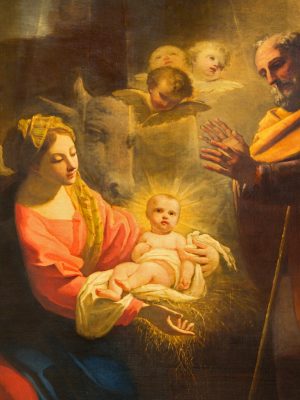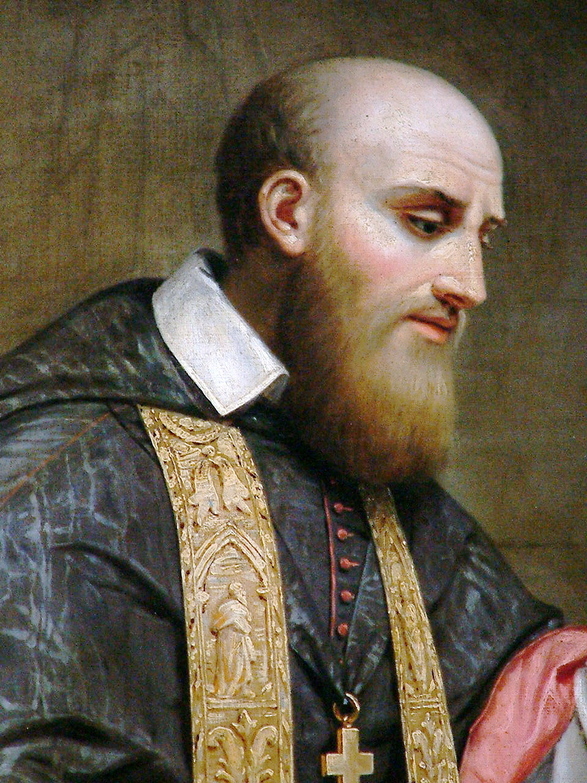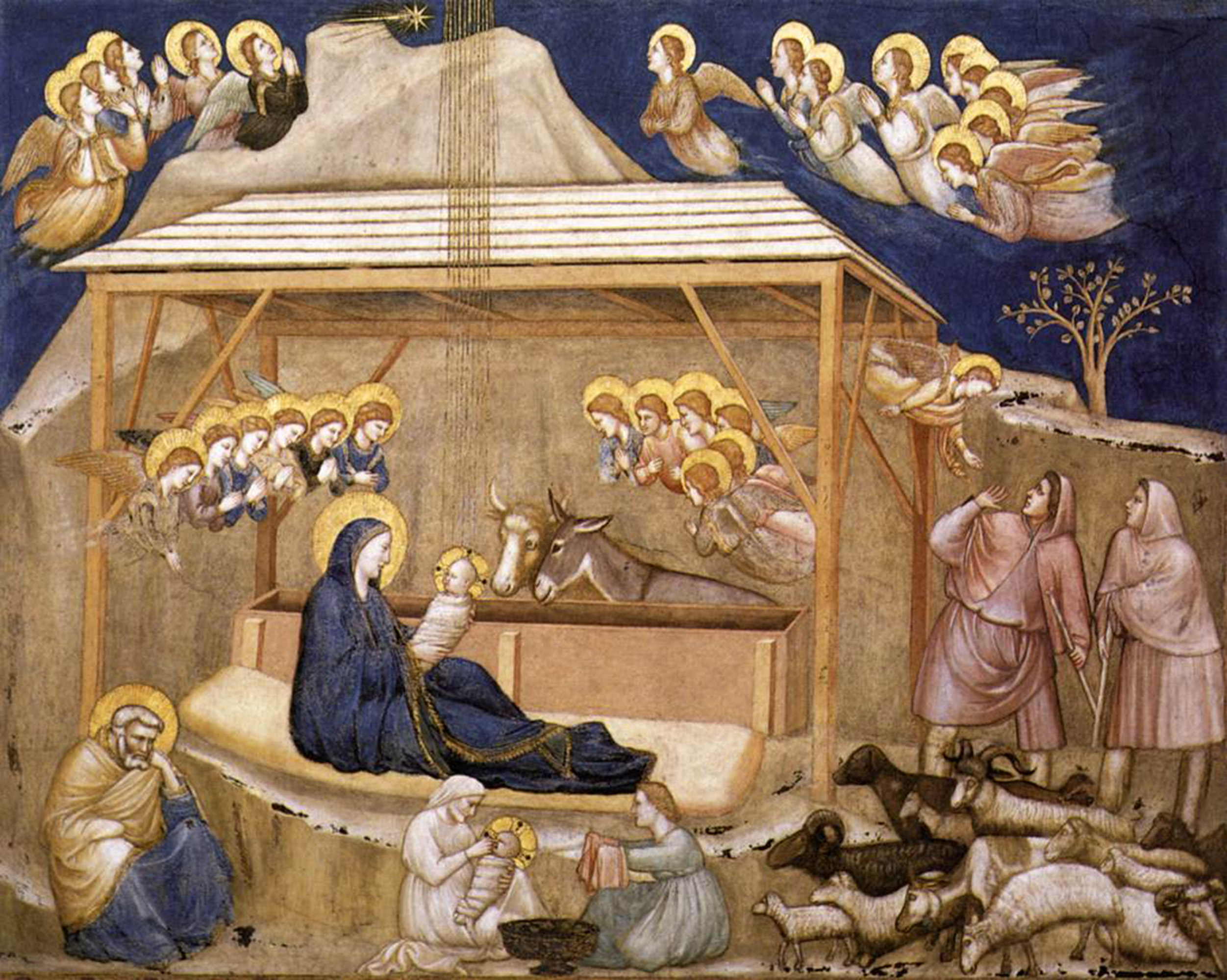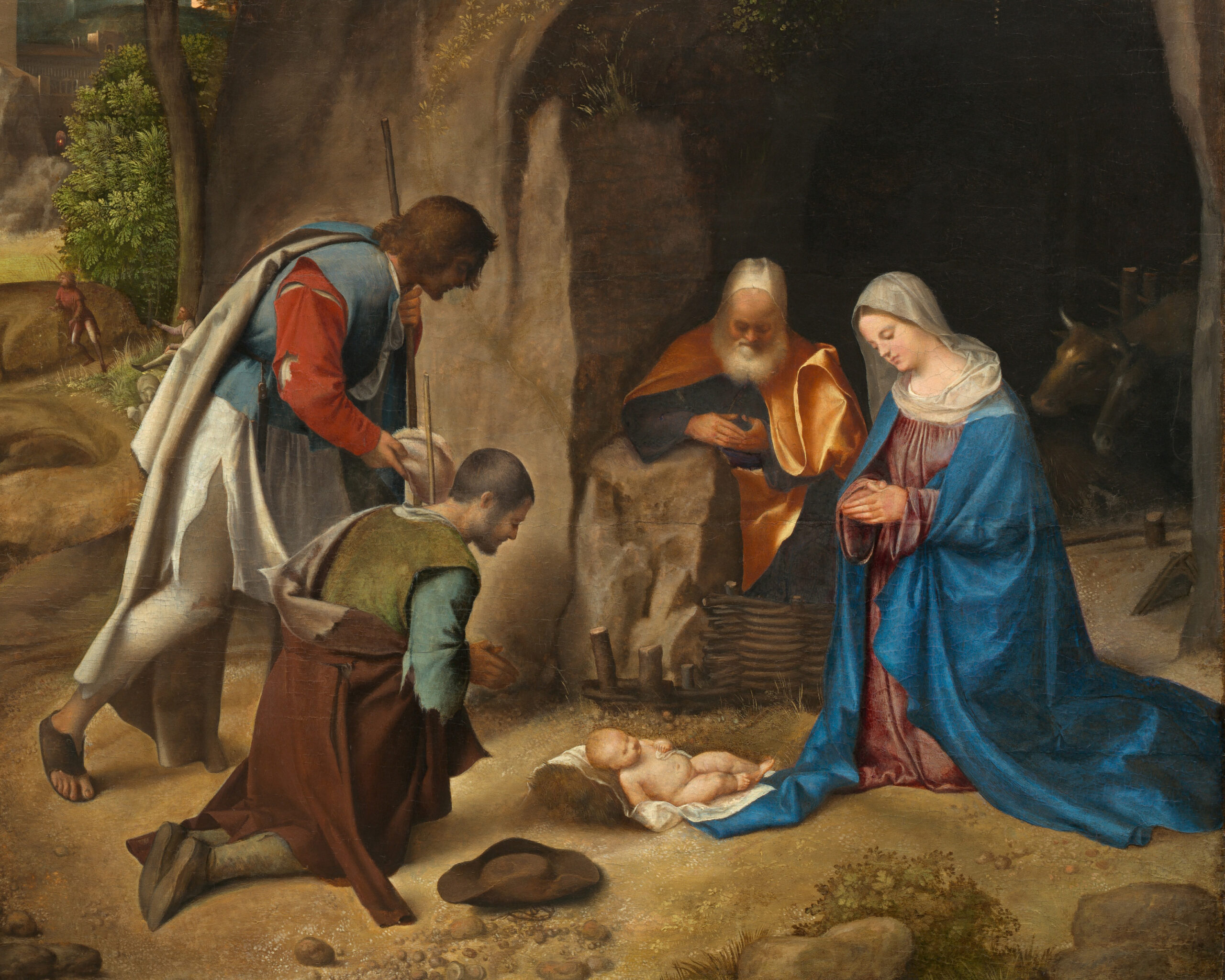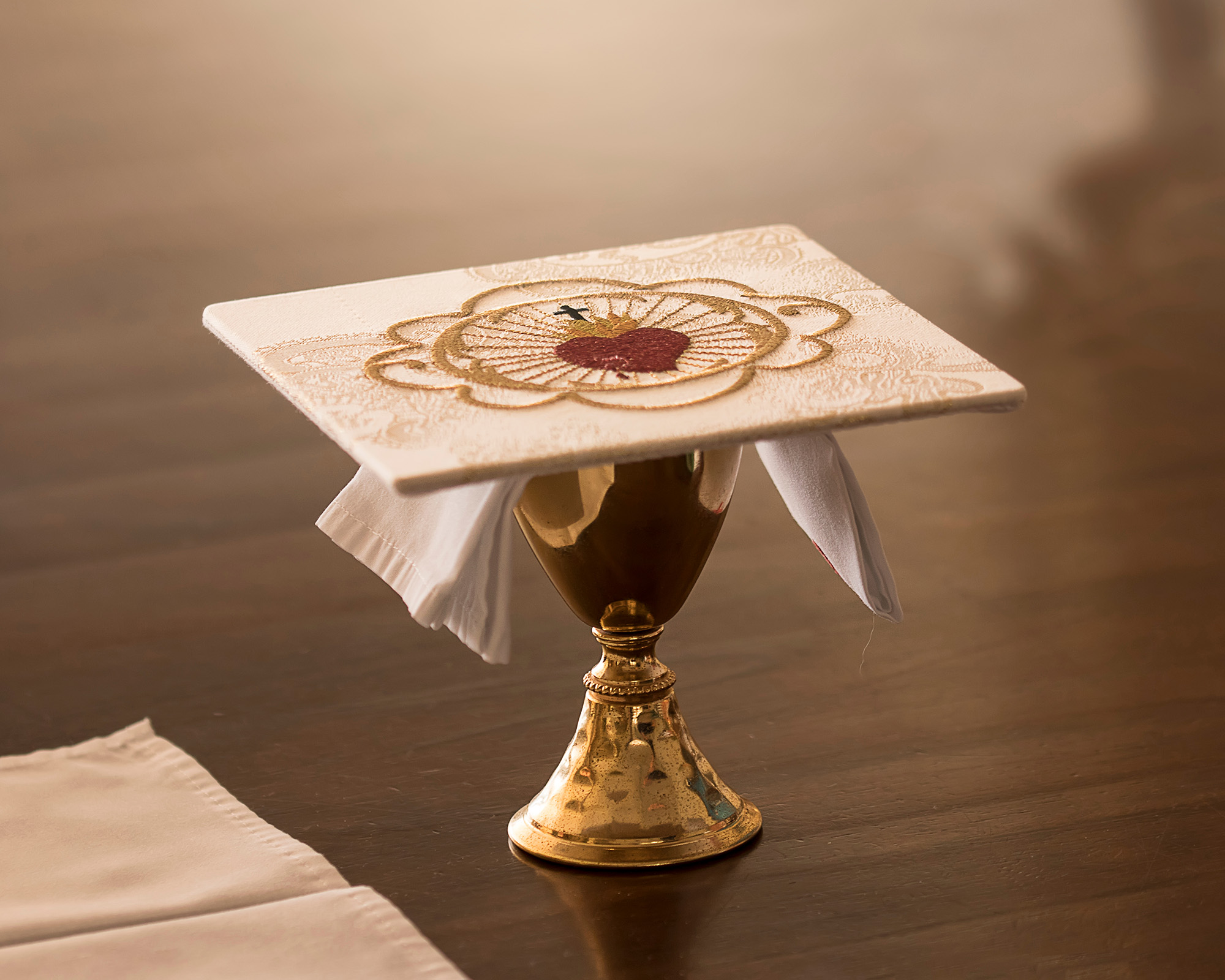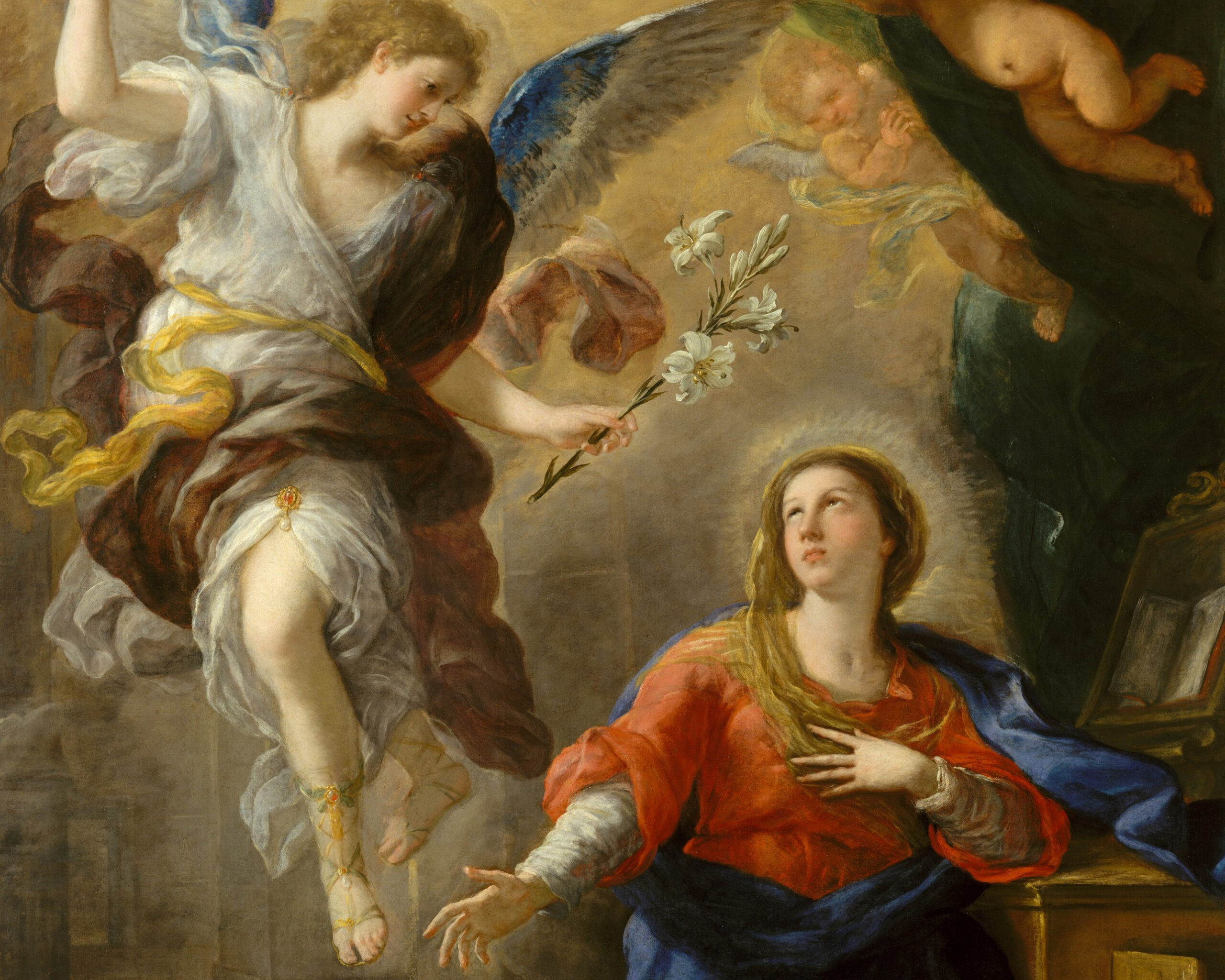Below is an inspiring sermon delivered by Saint Francis de Sales for Midnight Mass, December 25, 1622.
Highlights include:
- The great Christian feasts in the early Church and their observances
- The Incarnation as God’s end in creating the world
- The two births of the Word, eternal and temporal
- The two natures of the Word made flesh
- The eternal Father’s goodness to us in making His Son a member of our human race
May readers be inspired by this magnificent, short sermon on the glories of the Incarnation of the Son of God. We also take this opportunity to wish you all a very Merry Christmas!
The sermon follows bellow:
“Among the solemnities of Holy Church there are three which have been celebrated at all times and which have their original source in that great feat of Passover which was observed in the Old Law.
These three feasts are all called Pasch, or Passage, or Passover (Ex. 12:11). Today’s feast was instituted to commemorate Our Lord’s passage from His Divinity to our humanity.
The second passage is that from His Passion and death to His Resurrection, His passage from mortality to immortality, which we celebrate all during Holy Week and at Easter.
The third passage is celebrated at Pentecost, the day on which Our Lord adopted the Gentiles (Cf. Acts 2:17, 39) and permitted them to pass from infidelity to the happiness of becoming His well-beloved children, the greatest happiness possible for the Church. All these feasts find their source in today’s mystery.
But you may say at this point that it is not usual to preach at night. And I reply that it was indeed the custom in the primitive church, while it was in its first flower and vigor.
St. Gregory bears witness to this in his homily for this day. The early Christians even said the three nocturns of Matins separately, rising three times during the night for this purpose.
Moreover, they went to choir seven times a day to recite the Office, thereby fulfilling verse 164 of Psalm 118 (119). St. Augustine says that they even preached three times on this feast: first at Midnight Mass, then at the Mass, and finally at the Mass during the day.
So great was the fervor of those early Christians that nothing wearied them. The least among them was of grater value than the best of religious of today.
We have become so cold since those early days that we must now shorten the Mass, the Office, and sermons.
But this is not to the point. Rather, I intend to speak to you first of which the Church sets before us this day, and then of what we should hope for and do in light of this faith.
If I do not finish all that I want to say I shall do so later in the day, if God gives us the time.
Before beginning my discourse I wish to remind you that I like to use analogies when I preach. I will do so here, too.
Now in all that we do or plan, if we are wise we keep its purpose or goal in mind (Ecclus. [Sir.] 7:40 [36]), for we should have one.
For example, if someone intends to build a house or a palace he must first consider whether it is to be a lodging for a vine-dresser or peasant or if it is for a lord, since obviously he would use entirely different plans depending on the rank of the person who is to live there.
Now the Eternal Father did just that when He build this world. He intended to create it for the Incarnation of His Son, the Eternal Word.
The end or goal of His work was thus its beginning, for Divine Wisdom had foreseen from all eternity that His Word would assume our nature in coming to earth.
This was His intent even before Lucifer and the world were created and our first parents sinned.
Our true and certain tradition holds that sixteen hundred twenty-two years ago Our Lord came to this world and, in assuming our nature, became man.
Thus we are celebrating the Savior’s birth on earth. But before speaking of that birth let us say something of the Word’s divine and eternal birth.
The Father eternally begets His Son, who is like Him and co-eternal with Him. He had no beginning, being in all things equal to His Father.
Yet we speak of the son being born for us from the Father’s bosom, from His substance, as we speak of the rays coming forth from the bosom of the sun, even though the sun and its rays are but one and the same substance.
We are forced to speak thus, recognizing the inadequacy of our words. Were we angels we would be able to speak of God in a far more adequate and excellent way.
Alas, we are only a little dust, children who really do not know what we are talking about. The Son then, begotten of the Father, proceeds from the Father without occupying any other place.
He is born in Heaven of His Father, without a mother. As sole origin of the Most Blessed Trinity the Father remains the Virgin of virgins.
On earth the Son is born of His Mother, Our Lady, without a father. Let us say a word about these two births, for which we have true and certain proofs, as I said a while ago.
The Evangelist (Lk. 1:35) assures us that the Divine Word became flesh in the most holy Virgin’s womb when the angel announced to her that the Holy Spirit would come upon her and that the power of the Most High would overshadow her.
This is not, of course, to say that in Jesus Christ there are two persons.
In the hypostatic union, the Word became flesh is true God and true man, and this without any separation, from the moment of His Conception.
Some examples may help. Naturalists tell us that honey is made of a certain gum called “manna,” which falls from the sky, and unites or mixes with flowers which in turn draw their substance from the earth.
In joining together, these two substances result in the one honey. In our Lord and Master, Divinity has similarly united our nature with His own, and God has made us sharers of the Divine nature in some fashion (2 Peter 1:4), for He was made man like us (Phil. 2:7; Heb. 4:15).
Note that there is a difference between honey collected from thyme and all other kinds. It is much more excellent than that called heraclean, which is made from the aconite and other flowers.
As soon as we taste it we recognize that it is form thyme, because it is both bitter and sweet. Heraclean honey, on the other hand, causes death.
It is similar with Our Lord’s sacred humanity. Springing from Mary’s virginal soil, His humanity is very different from ours, which is wholly tainted by corruption and sin.
Indeed, because the Eternal Father willed His only-begotten Son to be the Head and absolute Lord of all creatures (Col. 1:15–18), He willed that the most holy Virgin should be the most excellent of all creatures, since He had chosen her from all eternity to be the Mother of His Divine Son.
In truth, Mary’s sacred womb was a mystical hive in which the Holy Spirit formed this honeycomb wither most pure blood.
Further, the Word created Mary and was born of her, just as the bee makes honey and honey the bee, for one never sees a bee without honey nor honey without a bee.
At His birth we have very clear proofs of Our Lord’s Divinity. Angels descend from Heaven and announce to the shepherds that a Savior is born (Luke 2:8–14) to them. Magi come to adore Him (Matt. 2:1–11).
This clearly shows us that He was more than man, just as, on the contrary, His moaning as He lies in His manger shivering from the cold shows us that He was truly man.
Let us consider the Eternal Father’s goodness. Had He so desired He could have created His Son’s humanity as He did that of our first parents, or even given Him an angelic nature, for it was in His power to do so.
Had he willed to do so Our Lord would not have been of our nature. We would not then have had any alliance with Him.
But His goodness was such that He made Himself our brother in order that He might both give us an example (Rom. 8:29; Heb. 2:11–17) and render us sharers in His glory.
It was for this reason that He willed to be of Abraham’s seed, for the most holy Virgin was indeed of Abraham’s race, for it is said of her: Abraham and his seed (Lk. 1:55; Rom. 1:3; Gal. 3:16).
I leave you at the feet of this blessed Mother and Child so that, like little bees, you may gather the milk and honey that flow from these holy mysteries and her chaste breasts, while waiting for me to continue, if God grants us the grace and gives us the time. I beg Him to bless us with His benediction. Amen.”
Source: The Sermons of St. Francis de Sales for Advent and Christmas, available from TAN Books, pp. 82–86.


